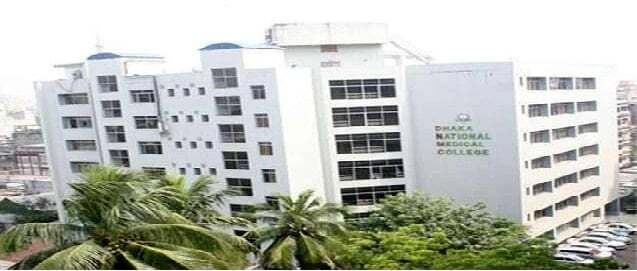Study MBBS in Romania for Indian Students – Medical University Admission Process, Tuition Fee
Romania has become a popular destination for international students to pursue MBBS in abroad, thanks to its approved medical universities like Constanta-Ovidius Medical University of Constanta. Offering high-quality education at affordable fees, the MBBS course in Romania is recognized by the National Medical Commission (NMC) and other global bodies, enabling foreign medical graduates to practice in various countries, including India. The MBBS in Romania fee structure is between INR 30-50 lakhs, and the cost of living in Romania is relatively affordable. Approximately 1,500 international students are admitted annually to Romanian medical universities, making it an attractive choice for students seeking affordable, high-standard medical education.
About Romania
| Category | Details |
|---|---|
| Capital | Bucharest |
| Official language | Romanian |
| Currency | Romanian Leu (RON) |
| Number of Universities | 10+ Top Medical Universities |
| Average Tuition Fees for MBBS | ₹ 4.2 Lac – ₹ 6 Lac/Year (USD 5,000 – USD 7,000/Year) |
| Cost of Living in Romania | ₹ 16,000 – ₹ 24,000/month (USD 200 – USD 300/month) |
| Minimum and Maximum Temperature | -20°C in winter and 35°C in summer |
| Exchange Rates to INR | 1 INR = 0.056 Romanian Leu (RON) |
| Climate | Temperate-continental climate with hot summers and cold winters |
Cultural Insights and Geographical Overview of MBBS in Romania
Romania offers a unique blend of traditional and modern European influences, creating a vibrant cultural experience for international students studying in Romania. The country is known for its low cost of living and safe environment, making it an attractive destination for students pursuing medical courses in Romania. With its welcoming atmosphere and rich cultural heritage, Romania provides students with both an academic and culturally enriching experience. Additionally, Romanian medical universities are located in picturesque cities, allowing students to immerse themselves in both academic and local cultural activities, including festivals, museums, and historic sites, enriching their overall experience while studying.
The Educational System to Study MBBS in Romania 2025
The educational system in Romania adheres to European standards, ensuring high-quality medical education. Romanian medical universities are recognized by global bodies like the National Medical Commission (NMC) and the Medical Council, offering internationally accepted degrees. The MBBS course in Romania focuses on both theoretical and clinical training, providing modern research facilities and practical exposure, making Romania a leading choice for those looking to pursue MBBS abroad. Furthermore, universities of Romania offer diverse medical programs, with students having access to top-notch laboratories and modern teaching methods, enhancing both their academic and practical expertise for future medical careers.
Want To Study in Romania?
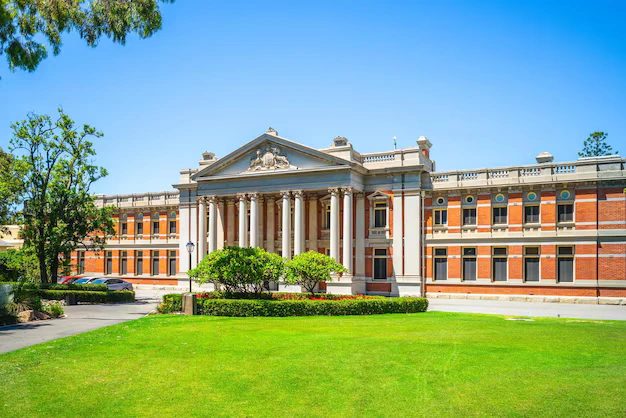
Why Study MBBS in Romania 2025-26?
Romania has become one of the top destinations for international students, particularly Indian medical students, looking to pursue MBBS in abroad. Here are some key reasons why Romania stands out as a favorable option for medical education:
Affordable Tuition Fees for MBBS in Romania
- Romania offers affordable education compared to many other European countries. The mbbs in romania fee structure typically ranges between INR 30-50 lakhs for the entire course, making it a cost-effective option.
- The cost of living in Romania is also relatively low, ranging between INR 12,000–20,000 per month, including accommodation, food, and other basic expenses.
Recognition of MBBS in Romania for Indian Students
- Romanian medical universities are recognized by the National Medical Commission (NMC), making it easier for Indian students to pursue an MBBS degree and later practice in India after clearing the necessary licensing exams.
- MBBS in Romania admission is straightforward for Indian medical aspirants, and upon graduation, they are considered foreign medical graduates eligible to practice in India.
Global Recognition of Medical Degrees in Romania
- Romanian universities are globally recognized by leading medical bodies like the Medical Council in various countries, allowing medical graduates to practice in multiple countries worldwide.
- The top medical universities in Romania, including Constanta-Ovidius Medical University of Constanta, are approved by the National Medical Commission and other international medical organizations.
Cultural Fit for Indian Students in Romania
- Romania is one of the most culturally diverse and welcoming countries for international students studying in Romania. The blend of traditional and modern culture, combined with a friendly population, allows Indian students to feel comfortable during their studies.
- Romanian medical colleges provide support services for international students, helping them adjust to life in Romania.
High-Quality Medical Education in Romania
- Romania offers high-quality medical programs with modern teaching facilities, experienced faculty, and hands-on clinical training. The courses in Romania are designed to meet global medical standards, ensuring students receive a well-rounded education.
- The duration of MBBS in Romania is 6 years, which includes extensive clinical rotations to prepare students for the demands of medical practice.
Safe and Student-Friendly Environment in Romania
- Romania provides a safe environment for students, with a student-friendly atmosphere and accessible cities. Students must follow a well-structured romania admission process, which includes visa support and guidance from their respective universities.
- Universities of Romania prioritize student welfare, offering affordable accommodation and support services to ensure a smooth and productive educational experience.
Want To Study in Romania?
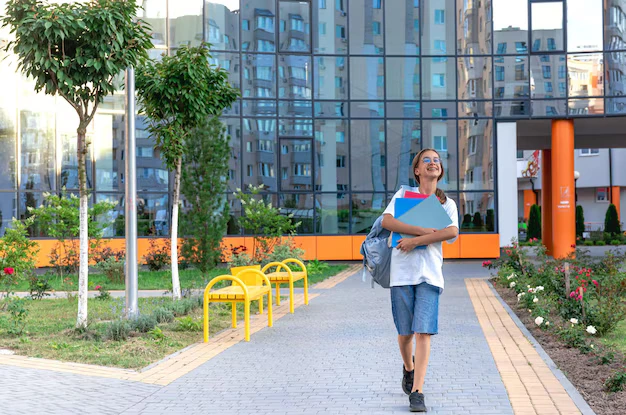
Quick Highlights About MBBS in Romania
| Feature | Details |
|---|---|
| Recognized by | National Medical Commission (NMC) and other international bodies |
| Medium of Instruction | English |
| MBBS in Romania Fee Structure | INR 30-50 Lakhs for the entire course |
| Cost of Living in Romania | INR 12,000 – 20,000 per month |
| Top Medical Universities in Romania | Constanta-Ovidius Medical University of Constanta, Carol Davila University |
| Eligibility Criteria | 50% in 12th grade (Physics, Chemistry, Biology), NEET qualified |
| Approved Medical Universities | Recognized by National Medical Commission and other medical councils |
| Global Recognition | Degrees recognized globally, allowing practice in India and abroad |
| International Student Admission | Over 1,500 international students studying in Romania each year |
Want To Study in Romania?
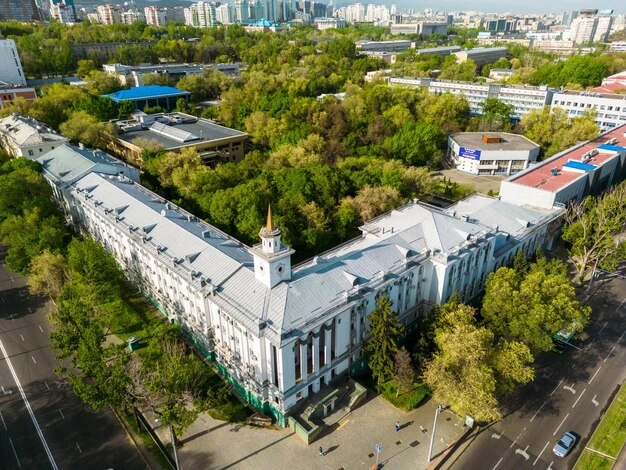
Study MBBS in Romania for Indian Students 2025-26
Romania has become a preferred destination for Indian medical students looking to pursue an MBBS abroad. With its affordable fees, globally recognized degrees, and English-medium instruction, Romania offers Indian students a high-quality education in some of the top medical universities. Here are the reasons why Indian students should consider studying MBBS in Romania.
Why Romania is the Best Choice for Indian Students to Study MBBS
- Romania is one of the most sought-after destinations for Indian medical students due to its well-structured MBBS course in Romania. The country provides high standards of education through approved medical universities recognized by the National Medical Commission (NMC).
- Romanian universities offer excellent infrastructure, modern laboratories, and clinical exposure, which are essential for comprehensive medical education.
English-Medium Instruction for Indian Students in Romania
- Romanian medical universities offer English-medium instruction for the MBBS course, which eliminates language barriers for Indian students.
- This allows students to focus on their studies without worrying about learning a new language, making Romania an ideal destination for Indian students.
Low Tuition Fees for Indian Students in Romania
- The mbbs in romania fee structure is much lower compared to other countries offering MBBS programs. The fees in Romania for MBBS typically range from INR 30-50 lakhs for the entire course.
- The cost of living in Romania is also affordable, ranging between INR 12,000 – 20,000 per month, which makes Romania a cost-effective option for Indian students.
Global Recognition of MBBS Degrees for Indian Students
- Romanian medical universities are recognized by international bodies such as the Medical Council and the National Medical Commission (NMC), ensuring that Indian medical graduates can practice in India after clearing the necessary licensing exams.
- Foreign medical graduates from Romania can also pursue careers in other countries, making the degree globally valuable.
Proximity and Cultural Familiarity
- Romania’s location in Europe offers easy travel connections, making it accessible for Indian students and other international students.
- Cultural similarities, such as shared family values and hospitality, help Indian students adapt more quickly.
- Romania’s student-friendly atmosphere and multicultural environment make it welcoming for international students.
Scholarships for Indian Students Studying MBBS in Romania
- Romania offers various scholarships for Indian students, helping reduce the financial burden for those pursuing medical studies.
- Many universities of Romania offer merit-based and need-based scholarships to support Indian students in achieving their medical education goals.
Cultural Similarities for Indian Students in Romania
- Romania has a welcoming and diverse culture that shares similarities with Indian traditions, making it easier for international students studying in Romania to adjust.
- Romanian medical colleges provide support services that help Indian students integrate into the local culture while they pursue MBBS.
Career Opportunities after MBBS in Romania for Indian Students
- After completing their MBBS in Romania, Indian students can return to India or pursue further medical studies in Romania or other countries.
- Romania has become a hub for medical education, and medical graduates from Romania are in demand globally due to the high standards of education offered by Romanian medical universities.
Want To Study in Romania?
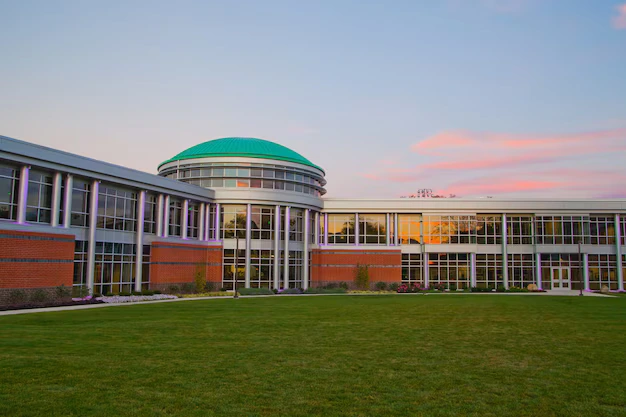
Studying MBBS Admission Process in Romania 2025-26
Romania has become a top destination for students looking to pursue an MBBS in abroad due to its affordable fees, high-quality education, and globally recognized degrees. The admission to MBBS in Romania follows a structured process, with clear guidelines regarding eligibility, required documents, and deadlines. Here’s a detailed look at the MBBS in Romania admission process for 2025-26.
Eligibility Criteria and Required Documents for Studying MBBS in Romania 2025-26
To gain admission to MBBS in Romania, students must meet the following eligibility criteria:
NEET Qualification: Indian students must qualify for the National Eligibility cum Entrance Test (NEET) to be eligible for MBBS admission in Romania. For the 2025 academic year, the NEET qualifying marks are set at the 50th percentile (720-162) for general category students and 40th percentile (161-127) for SC/ST/OBC categories. NEET is a mandatory requirement for Indian students seeking to pursue an MBBS abroad, including Romania.
Academic Requirements: Students applying for MBBS in Romania should have completed their 12th grade with core subjects such as Physics, Chemistry, Biology, and English. The minimum marks required are 50% for general category students and 45% for SC/ST/OBC students. These academic qualifications ensure that students have a strong science foundation necessary for the medical curriculum in Romanian universities.
Required Documents:
- Completed MBBS admission application form.
- Valid passport (with at least 6 months validity).
- 12th-grade mark sheets and certificates.
- NEET scorecard (for Indian students).
- Birth certificate.
- Medical fitness certificate.
- Passport-sized photographs (6-8).
- Proof of financial stability (bank statement showing sufficient funds to cover tuition and living expenses).
- Admission letter from the selected university.
Application Process and Deadlines to Study MBBS in Romania 2025
The romania admission process for MBBS involves the following steps:
- Application Submission: Students must apply directly to the chosen Romanian universities by filling out the application form and submitting the required documents.
- Evaluation and Admission Letter: The university evaluates the student’s application and, upon meeting the eligibility criteria, issues an admission letter.
- Payment of Fees: Once the admission letter is received, students must pay the first-year tuition fee to confirm their seat.
- Visa Application: After the payment, students can apply for a student visa (details below).
Deadlines:
- Application period: Generally opens in May and extends until August.
- Visa application deadline: Students should apply for their visa at least 2-3 months before the program starts, as visa processing may take time.
Visa Requirements and Process for Studying MBBS in Romania
Students planning to study MBBS in Romania must apply for a long-term student visa. The visa process involves submitting the following:
- Admission letter from a Romanian university.
- Proof of paid MBBS fees in Romania.
- Valid passport.
- Medical insurance covering the duration of the stay.
- Financial proof demonstrating the ability to cover living expenses.
- Police clearance certificate (no criminal record).
- Visa application form (filled and signed).
Students must submit these documents to the nearest Romanian embassy or consulate in their home country. The visa approval process can take 4-6 weeks.
Intake for MBBS Study in Romania
Intake Overview Table:
| Intake | Application Period | Program Start |
|---|---|---|
| September Intake | May – August | September |
| March Intake | November – February | March/April |
Want To Study in Romania?
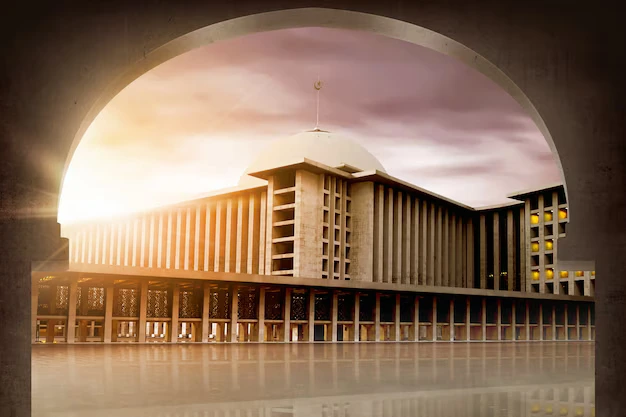
Fee Structure and Costs to Study MBBS in Romania 2025-26
Tuition Fees to Study MBBS in Romania
| Year | Tuition Fee (in ₹) | Tuition Fee (in USD) |
|---|---|---|
| 1st Year | ₹4,00,000 – ₹5,00,000 | $5,500 – $6,000 |
| 2nd Year | ₹4,00,000 – ₹5,00,000 | $5,500 – $6,000 |
| 3rd Year | ₹4,00,000 – ₹5,00,000 | $5,500 – $6,000 |
| 4th Year | ₹4,00,000 – ₹5,00,000 | $5,500 – $6,000 |
| 5th Year | ₹4,00,000 – ₹5,00,000 | $5,500 – $6,000 |
| 6th Year | ₹4,00,000 – ₹5,00,000 | $5,500 – $6,000 |
| Total Estimated Cost | ₹24,00,000 – ₹30,00,000 | $33,000 – $36,000 |
Other Fees and Financial Costs Associated to Study MBBS in Romania
Apart from tuition fees, students will also need to account for living expenses, which include accommodation, food, and other essentials. Here’s a table that outlines these additional costs:
| Expense | Estimated Cost (USD/month) | Estimated Cost (INR/month) |
|---|---|---|
| Accommodation (on-campus) | $250 – $400 | INR 20,000 – INR 32,000 |
| Accommodation (off-campus) | $300 – $500 | INR 24,000 – INR 40,000 |
| Food and Meals | $150 – $250 | INR 12,000 – INR 20,000 |
| Transportation | $30 – $50 | INR 2,500 – INR 4,000 |
| Books and Study Materials | $50 – $100 (per semester) | INR 4,000 – INR 8,000 (per semester) |
| Health Insurance | $100 – $150 (annually) | INR 8,000 – INR 12,000 (annually) |
| Miscellaneous Expenses | $50 – $100 | INR 4,000 – INR 8,000 |
Hidden Costs to Pursue MBBS in Romania
In addition to regular fees and living expenses, students should be aware of hidden costs such as visa fees, residency permits, and medical checkups. Here is a breakdown of these additional charges:
| Hidden Charges | Estimated Cost (USD) | Estimated Cost (INR) |
|---|---|---|
| Visa Processing Fees | $100 – $150 | INR 8,000 – INR 12,000 |
| Flight Tickets (one-way) | $400 – $800 | INR 32,000 – INR 64,000 |
| Residency Permit | $100 – $200 (annually) | INR 8,000 – INR 16,000 |
| Medical Checkups and Vaccines | $50 – $100 | INR 4,000 – INR 8,000 |
| Student Registration Fees | $200 – $300 | INR 16,000 – INR 24,000 |
Want To Study in Romania?
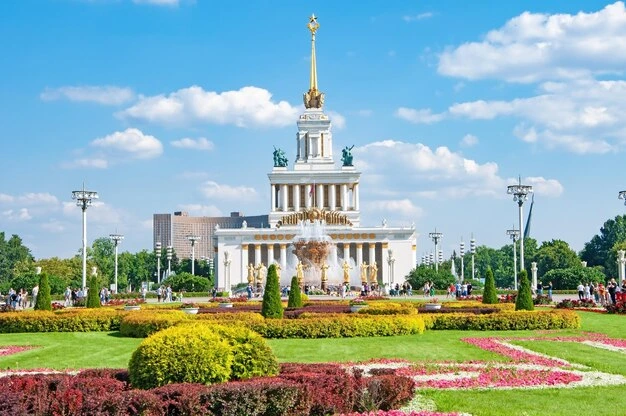
Top Ranked Medical Colleges in Romania to Study MBBS 2025-26
Top Medical College in Romania to Study MBBS 2025-26
| University | Location | World Ranking | NMC & WHO Approved | Annual Tuition Fees (USD) |
|---|---|---|---|---|
| Carol Davila University of Medicine and Pharmacy | Bucharest | Top 600 | Yes | $6,000 – $8,000 |
| Constanta-Ovidius Medical University of Constanta | Constanta | Top 1,000 | Yes | $5,500 – $7,500 |
| Iuliu Hațieganu University of Medicine and Pharmacy | Cluj-Napoca | Top 800 | Yes | $6,000 – $7,000 |
| Grigore T. Popa University of Medicine and Pharmacy | Iasi | Top 1,000 | Yes | $6,000 – $7,000 |
| Victor Babeș University of Medicine and Pharmacy | Timișoara | Top 1,200 | Yes | $5,500 – $7,000 |
| University of Oradea | Oradea | Top 1,200 | Yes | $5,500 – $7,000 |
Want To Study in Romania?
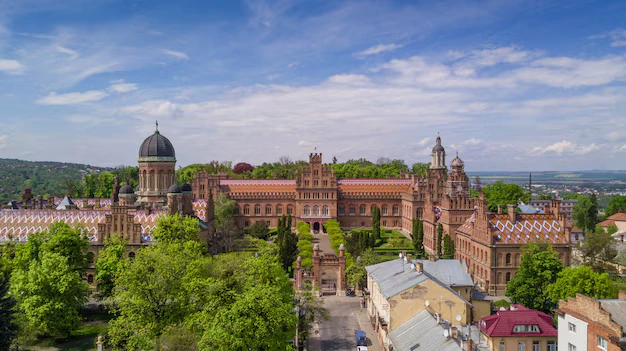
Advantages of Studying MBBS in Romania 2025-26
Romania has become one of the top destinations for international students studying in Romania, especially for those looking to pursue MBBS. With affordable fees, high-quality education, and globally recognized degrees, Romania offers various advantages for aspiring medical students.
Cost of Studying MBBS in Romania vs Other Countries
- Romania offer highly affordable tuition fees compared to other European countries like the UK, USA, or Australia. The mbbs in romania fee structure ranges from INR 30-50 lakhs for the entire course.
- The cost of living in Romania is significantly lower than in many Western countries, making it more financially accessible for students.
- Compared to mbbs in kazakhstan or other mbbs in abroad destinations, Romania provides excellent value for money due to the combination of lower living costs and high educational standards.
High Standard of Medical Education
- Romania is one of the top destinations in Europe for medical studies, offering a robust and well-structured mbbs course in romania.
- The top medical universities in Romania are equipped with state-of-the-art research facilities, offering students hands-on practical training.
- Romanian medical universities are recognized for their research capabilities, ensuring students graduate with a comprehensive understanding of modern medicine.
Global Recognition of Medical Degrees in Romania
- Romanian universities are recognized by the National Medical Commission (NMC), WHO, and other medical council bodies globally, which means foreign medical graduates can practice in multiple countries, including India.
- Students who complete their MBBS course from approved medical universities in Romania are eligible for admission to MBBS postgraduate programs and licensure exams worldwide.
English-Medium Instruction for MBBS in Romania
- Romania offers English-medium instruction for the entire mbbs course, which is a major advantage for international students studying in Romania, particularly those from non-European countries like India.
- This helps students avoid language barriers and focus more on their medical studies rather than learning a new language.
Cultural Adaptation for International Students in Romania
- Romania is one of the culturally diverse and student-friendly countries in Europe, making it easier for international students to adapt.
- Romanian medical colleges offer various support systems, including cultural programs and orientation sessions, to help students to get accustomed to the new environment.
- The country is known for its welcoming attitude toward foreign medical graduates, which enhances the overall student experience.
Post-Graduation Opportunities After MBBS in Romania
- Romania admission to medical programs offers strong post-graduation pathways, with opportunities to practice medicine not only in Romania but also in other countries across Europe and beyond.
- Students can continue with further medical studies such as specializations, master’s, or PhD programs in Romania or other countries.
- Medical graduates from Romania’s approved medical universities are in demand globally due to the high standard of education provided, offering numerous career pathways post-MBBS.
Want To Study in Romania?
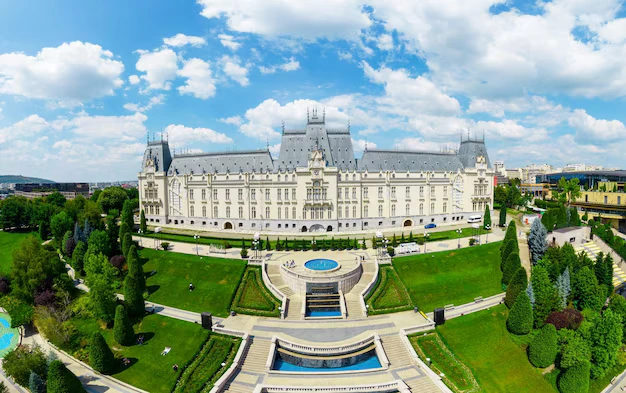
Course Details and Curriculum of Studying MBBS in Romania 2025-26
Romania provides a well-structured MBBS course that adheres to European educational standards. The course curriculum in Romanian universities is designed to offer a balance between theoretical and practical knowledge, equipping students with the skills necessary to excel in their medical careers.
Course Details and Curriculum Table for MBBS in Romania:
| Year/Phase | Subjects | Key Focus |
|---|---|---|
| Year 1-2 (Phase 1) | Anatomy, Physiology, Biochemistry, Pharmacology | Basic medical sciences, theoretical foundations |
| Year 3 (Phase 2) | Pathology, Microbiology, Forensic Medicine | Disease understanding, laboratory work |
| Year 4-5 (Phase 3) | Surgery, Medicine, Pediatrics, Obstetrics & Gynecology | Clinical training, exposure to medical practice |
| Year 6 (Internship) | Hospital-based clinical practice | Practical experience in various medical departments |
MBBS Duration in Romania
- The duration of MBBS in Romania is 6 years, including the internship phase.
- Students must complete 5 years of academic training and 1 year of clinical internship to graduate.
- Romania offer a streamlined process for students to gain practical experience in various hospitals affiliated with the universities of Romania.
Academic Support Services in Romania
- Romanian medical colleges offer various support services to help students succeed academically. These include tutoring services, counseling, and academic advisors.
- Students must have access to libraries, study materials, and peer support groups to ensure smooth academic progress.
- Many courses in Romania incorporate mentorship programs to help guide students through challenging subjects.
Research and Laboratory Facilities for MBBS Students
- Romanian medical universities are equipped with modern laboratories for conducting medical research and clinical simulations.
- Students can take part in medical studies and research projects, which help build their knowledge and experience.
- Top medical universities in Romania provide access to advanced equipment and tools essential for hands-on learning.
Online Learning Resources and Platforms for MBBS Students
- In response to modern education trends, many medical schools in Romania have developed online platforms that offer lecture recordings, e-books, and interactive learning tools.
- Universities of Romania encourage students to use online platforms to access additional learning resources, enhancing their understanding of medical studies.
- Virtual lab simulations are becoming popular, allowing students to practice procedures in a controlled, digital environment.
Use of Technology in Medical Education in Romania
- Romania offer advanced technology for medical education, including virtual anatomy labs, 3D medical imaging tools, and clinical simulation centers.
- Top medical universities in Romania integrate the latest technology into the MBBS course, helping students stay updated with advancements in the medical field.
- Students benefit from interactive learning methods such as AI-based diagnostic tools, enhancing their critical thinking and problem-solving abilities.
Want To Study in Romania?

Studying MBBS in Romania Syllabus
MBBS Syllabus in Romania 2025
| Year/Phase | Subjects |
|---|---|
| Year 1 | Anatomy, Physiology, Biochemistry, Histology |
| Year 2 | Medical Genetics, Microbiology, Biochemistry, Immunology |
| Year 3 | Pathology, Pharmacology, Forensic Medicine, Community Medicine |
| Year 4 | Internal Medicine, Surgery, Pediatrics, Obstetrics & Gynecology |
| Year 5 | Orthopedics, ENT, Dermatology, Ophthalmology, Psychiatry |
| Year 6 (Internship) | Rotations in various specialties (e.g., Surgery, Internal Medicine, Cardiology, Pediatrics) |
MBBS Internship Structure and Details in Romania
The internship structure in Romania is a key part of the MBBS course. During the final year, students are required to complete a 1-year internship at a Romanian medical hospital or an affiliated institution.
- Clinical Rotations: Students rotate through departments like Internal Medicine, Surgery, Pediatrics, Gynecology, and more.
- Hands-On Experience: Students work under the supervision of experienced doctors and get the opportunity to apply the theoretical knowledge they gained during the course.
- Assessment: The internship period is assessed through practical evaluations and written exams.
Licensing Exams after MBBS in Romania
- After completing the MBBS course in Romania, students must pass the Licensure Exam to practice medicine. This exam is necessary for both local and international practice.
- For foreign medical graduates, the licensure exam in their home country, such as Indian medical graduates appearing for the NMC screening test, is essential.
Ethical Practices in Medical Education in Romania
- Romanian medical colleges emphasize the importance of ethics in medical practice. Courses on medical ethics are part of the MBBS syllabus and aim to instill professionalism and integrity in students.
- Ethical practices include patient confidentiality, consent, and responsible medical practice. These principles are deeply embedded in the curriculum to ensure that graduates uphold the highest standards of ethical medical care.
Environmental Sustainability in Medical Universities in Romania
- Romanian medical universities are increasingly adopting eco-friendly practices as part of their academic environment.
- Sustainability initiatives include reducing waste in laboratories, promoting the use of digital resources over paper, and encouraging energy-efficient practices in campus facilities.
- Courses on public health often include aspects of environmental health and the importance of sustainable medical practices in global healthcare.
Want To Study in Romania?

Opportunities and Career Prospects After Studying MBBS in Romania 2025-26
Romania provides excellent opportunities for medical graduates who complete their MBBS course. Students can pursue careers in medicine, research, or academia, or continue with further studies and specializations. Here’s a detailed overview of the career and job prospects and other opportunities available to foreign medical graduates after completing their studies in Romania.
Career and Job Prospects after MBBS in Romania
- Romanian medical universities produce well-trained graduates who are in demand globally, especially in Europe, India, and other regions.
- After graduation, students can work in hospitals, clinics, or research institutions in Romania or return to their home countries to practice.
- Romania offer opportunities to work in various medical sectors, including clinical research, public health, and private practice.
Higher Studies after MBBS in Romania
- Many students must opt for postgraduate education after completing their MBBS course in Romania to specialize in fields such as surgery, internal medicine, pediatrics, etc.
- Romania offers various medical programs for higher education in approved medical universities that are recognized globally.
- Graduates can also choose to pursue their higher studies in other countries, thanks to the global recognition of Romanian medical degrees by the National Medical Commission and other bodies.
Licensing and Practice in Romania
- To practice medicine in Romania, students must pass a licensing exam after completing their MBBS degree. This exam is a requirement for foreign medical graduates who wish to practice in Romania or Europe.
- For Indian medical students, passing the NMC screening test is mandatory to practice in India after completing their MBBS in Romania.
Part-Time Work Opportunities for MBBS Students in Romania
- Romania allows international students to work part-time during their studies. Students can take up jobs in healthcare settings, research institutions, or other part-time employment opportunities.
- Universities of Romania often provide internships and placements for students to gain hands-on experience in medical practice.
Post-MBBS Job Placement Services
- Romanian medical colleges offer job placement services to help students to get jobs after completing their MBBS. These services include career counseling, job fairs, and direct placement assistance in hospitals and clinics.
- Top medical universities collaborate with hospitals and healthcare institutions to ensure graduates can find relevant work soon after completing their degrees.
Alumni Network for MBBS Graduates from Romania
- The alumni network of Romanian medical colleges is strong and well-established, helping recent graduates connect with industry professionals and peers.
- These networks offer mentoring and guidance for new graduates, especially those looking to establish careers in foreign countries after their MBBS course in Romania.
Alumni Success Stories from MBBS in Romania
- Many alumni from approved medical universities in Romania have gone on to have successful careers in various fields, including medicine, research, and public health.
- Alumni success stories are a testament to the high quality of education provided by Romanian universities, with many graduates securing positions in top hospitals and medical institutions worldwide.
Common Challenges Faced by International MBBS Students and How to Overcome Them
- International students studying in Romania often face challenges such as language barriers, cultural differences, and adapting to a new academic system.
- To overcome these challenges, students are encouraged to take language courses, join international student groups, and seek support from university services. Additionally, many Romanian medical colleges provide orientation programs and cultural adaptation support to help international students integrate smoothly.
Want To Study in Romania?

Studying MBBS in Romania vs MBBS in India 2025-26
Here’s the table for MBBS in Romania vs MBBS in India :
| Criteria | MBBS in Romania | MBBS in India |
|---|---|---|
| Medium of Instruction | English | English in government colleges, regional languages in some private colleges |
| Admission Process | Based on NEET and direct admission | NEET for government and private medical colleges |
| Global Recognition | Recognized by WHO, National Medical Commission (NMC) | Recognized by NMC and WHO |
| Cost of Living | ₹1,50,000 – ₹2,40,000 per year | ₹2,50,000 – ₹4,00,000 per year, varies by city |
| Post-Graduation Opportunities | Available globally, with options for specialization | Highly competitive, with limited seats in government colleges for post-graduation |
| Clinical Exposure | Practical exposure starting from the third year | Limited practical exposure during early years |
| Cultural Adaptation | Easy adaptation for international students studying in Romania | Familiar environment for Indian students |
| Entrance Exam | NEET qualification required for MBBS in Romania admission | NEET mandatory for admission to all medical colleges in India |
| Part-Time Work Opportunities | Allowed up to 20 hours per week | Not permitted during MBBS studies in India |
Want To Study in Romania?

Studying MBBS in Romania vs MBBS in Other Countries 2025-26
Romania has emerged as one of the most sought-after destinations for international students looking to pursue an MBBS course. With its affordable fee structure, globally recognized degrees, and a wide range of opportunities, Romania stands out when compared to other countries offering MBBS in abroad programs.
Why MBBS in Romania and Not Other Countries
- Romania offer affordable tuition fees, significantly lower than countries like the USA, UK, or Australia, making it more accessible for international students.
- The mbbs course in Romania is taught in English, making it easier for international students, especially those from non-European countries like India.
- Romanian medical universities are recognized by the National Medical Commission (NMC), WHO, and other international medical bodies, ensuring that graduates can practice globally after passing relevant licensing exams.
- Romania is one of the few countries that balances high-quality education with a low cost of living, making it financially viable for students.
- Students who pursue an MBBS in Romania gain exposure to European medical standards, allowing for better opportunities in terms of both post-graduation studies and employment.
- The medical education system in Romania is highly structured, providing extensive clinical exposure starting from the third year, which is often lacking in other mbbs in abroad destinations like China or Russia.
Comparison for MBBS in Romania to Other MBBS Abroad Countries
| Criteria | MBBS in Romania | MBBS in Kazakhstan | MBBS in Russia | MBBS in China | MBBS in Iran |
|---|---|---|---|---|---|
| Tuition Fees | ₹24,00,000 – ₹30,00,000 (for the entire course) | ₹15,00,000 – ₹20,00,000 | ₹18,00,000 – ₹25,00,000 | ₹22,00,000 – ₹30,00,000 | ₹18,00,000 – ₹25,00,000 |
| Cost of Living | ₹1,50,000 – ₹2,40,000 per year | ₹1,00,000 – ₹1,50,000 per year | ₹1,20,000 – ₹1,80,000 per year | ₹2,00,000 – ₹3,00,000 per year | ₹1,20,000 – ₹1,80,000 per year |
| Medium of Instruction | English | English/Russian | English/Russian | English/Chinese | English/Persian |
| Global Recognition | Recognized by WHO, NMC, and other global medical bodies | Recognized by WHO, NMC | Recognized by WHO, NMC | Recognized by WHO, NMC | Recognized by WHO, NMC |
| Clinical Exposure | Starts from the third year with extensive hospital training | Moderate clinical exposure | Moderate clinical exposure | Limited clinical exposure in the early years | Good clinical exposure starting from the third year |
| Post-Graduation Opportunities | Available in Europe, USA, and globally | Limited opportunities in Europe | Limited post-graduation options outside Russia | Post-graduation opportunities available globally | Available in Iran and globally recognized countries |
| Cultural Adaptation | Easy for Indian and other international students | Moderate adaptation challenges due to language | Moderate adaptation challenges due to climate | Language and cultural barriers for foreign students | Moderate adaptation for Indian and international students |
Want To Study in Romania?

Scholarships and Financial Aids to Study MBBS in Romania 2025-26
Studying MBBS in Romania is a cost-effective option compared to other European countries. However, for many students, the mbbs course fees and living expenses can still be a burden. Thankfully, there are various scholarships for MBBS in Romania and financial aid programs available to help international students studying in Romania.
Scholarships for MBBS in Romania
Romania offers government-funded and university-specific scholarships for international students, including those pursuing MBBS in Romania. These scholarships often cover partial or full tuition fees, significantly reducing the cost of education. Below are some of the key scholarships available:
Romanian Government Scholarships: Provided by the Ministry of Foreign Affairs and the Ministry of Education, these scholarships cover tuition fees, accommodation, and a monthly stipend for outstanding students from various countries, including India.
Merit-based Scholarships: Many Romanian universities provide merit-based scholarships for students who excel in their medical studies. These scholarships are typically awarded at the end of each academic year based on academic performance and are designed to reward high-achieving students.
Erasmus+ Scholarships: This EU-funded program allows students to study in different countries within Europe, including Romania. It offers partial financial support for tuition fees and living expenses, benefiting students looking to broaden their academic experiences.
Cultural and Scientific Cooperation Scholarships: Available for students from countries that have bilateral agreements with Romania, these scholarships cover part of the tuition fees and provide a monthly allowance, making education more affordable.
Private Scholarships: Students can also apply for scholarships from private organizations, international medical associations, and NGOs. These external bodies provide additional financial support for students, especially those from developing countries, who are pursuing an MBBS course in Romania.
Scholarships are available for students from specific countries, including Indian medical students, who can benefit from dedicated financial aid programs for international students.
Financial Aids to Study MBBS in Romania
- Students can access financial aids to study MBBS in Romania through various government schemes, loans, and private sponsorships.
- Some Romanian medical universities provide installment-based payment options, allowing students to pay their tuition fees over time instead of upfront.
- International organizations such as the World Health Organization (WHO) and other medical bodies sometimes offer grants and aid to students to get financial assistance during their course.
- Cost of living in Romania is relatively low, and some students may also receive housing or food stipends through university financial aid programs.
How to Apply for Scholarship and Financial Aids to Study MBBS in Romania
- Students must research both government and university-specific scholarships available for MBBS in Romania. Applications typically open a few months before the start of the academic year.
- The application process for scholarships and financial aids often requires students to submit academic records, proof of admission to an approved medical university, and sometimes a statement of purpose.
- Romania admission portals provide details on deadlines and specific documents required to apply for these scholarships.
- Students can also apply for scholarships through their home country’s education boards or ministries, as well as through international exchange programs.
Want To Study in Romania?

MBBS Options for Indian Students Other Than Studying MBBS in Romania 2025
While MBBS in Romania is becoming increasingly popular due to its affordability and quality education, Indian students also consider several other countries for pursuing their medical degrees. Countries like Kazakhstan, Russia, China, and Iran are viable alternatives to studying MBBS in Romania, each offering different advantages depending on the student’s priorities.
Popular Countries to Study MBBS in Romania
Although MBBS from Romania is one of the best options for Indian students, there are other popular countries to pursue medical studies, such as:
Kazakhstan: Known for its best medical colleges and low tuition fees, Kazakhstan is a common alternative. However, the medium of instruction is often Russian, which can be a barrier for Indian students.
Russia: Russian medical universities are recognized globally and provide good clinical exposure. However, like Kazakhstan, language can be an issue, and students may face challenges with the Russian language in day-to-day life.
China: China offers English-medium courses and is one of the leading destinations for Indian students. The cost is relatively low, but some students may find it difficult to adapt to the local culture and healthcare system.
Iran: Known for its approved medical colleges and strong academic programs, Iran has become an emerging destination for Indian students. Iranian universities are recognized globally, but students must adapt to the cultural differences.
Feasible Options to Study MBBS in Romania
When it comes to feasible options to study MBBS in Romania, several factors make Romania one of the top choices:
- Romania is one of the few countries that offers a balanced combination of low tuition fees and globally recognized medical education.
- Romania medical colleges provide English-medium instruction, making it easier for Indian students to pursue their degrees without a language barrier.
- Approved medical colleges in Romania are recognized by the National Medical Commission (NMC) and WHO, making it easier for Indian students to practice medicine in India after passing the required licensure exams.
Pros and Cons of Each Destination
| Country | Pros | Cons |
|---|---|---|
| Romania | Low tuition fees, English-medium instruction, globally recognized degrees | Limited post-graduation options in Romania itself |
| Kazakhstan | Affordable fees, increasing global recognition | Language barrier (Russian/Kazakh), limited cultural adaptation support |
| Russia | Good clinical exposure, well-established universities | Language barrier (Russian), harsh climate, and cultural adaptation |
| China | Affordable fees, English-medium instruction | Strict cultural norms, limited clinical exposure in the initial years |
| Iran | High-quality education, recognized degrees | Cultural differences, adaptation challenges |
Want To Study in Romania?

Living Cost While You Study MBBS in Romania 2025-26
Studying MBBS in Romania offers an affordable education, but international students must also consider the cost of living in Romania. Romania is one of the most budget-friendly European countries, with affordable accommodation, food, and other daily expenses, making it an attractive destination for students. Understanding the living costs while pursuing an MBBS course in Romania can help students plan their finances more effectively.
Lifestyle, Culture, and Student Life While You Study MBBS in Romania
- Romania has a rich cultural history and offers a balanced lifestyle for international students studying in Romania.
- Students enjoy access to a mix of modern and traditional amenities, with several top medical universities located in culturally vibrant cities.
- Romanian universities host several student events, fostering a friendly environment where international students can easily integrate into local culture.
- While studying, students can explore Romania’s historical sites, cultural festivals, and local traditions, adding to their overall experience.
Safety and Accommodation for International Students to Study MBBS in Romania 2025
- Romania is considered a safe country for international students. Most romanian medical universities are located in cities with low crime rates, providing a secure environment for students.
- Students can choose between on-campus hostels or off-campus housing. Approved medical universities often provide affordable student accommodations, which cost between €100 – €200 per month, depending on the location and amenities.
- Private accommodation options are also available, costing between €200 – €400 per month depending on the city.
- Universities provide guidance and support in helping students find suitable accommodation, making the process seamless for new arrivals.
Comparative Living Costs for Medical Students in Various Countries
| Country | Monthly Living Cost (in USD) | Monthly Living Cost (in INR) |
|---|---|---|
| Romania | $200 – $300 | ₹16,000 – ₹24,000 |
| Kazakhstan | $150 – $250 | ₹12,000 – ₹20,000 |
| Russia | $300 – $400 | ₹24,000 – ₹32,000 |
| China | $250 – $400 | ₹20,000 – ₹32,000 |
| Iran | $200 – $300 | ₹16,000 – ₹24,000 |
Language and Communication for International Students in Romania
- The official language in Romania is Romanian, but English is widely spoken in academic settings, especially in approved medical universities that offer English-medium instruction for the mbbs course.
- Romania offer language support courses for international students who wish to learn Romanian, which can be beneficial for daily communication and cultural immersion.
- Universities also provide translation services and guidance to help students navigate local services, making communication easier for students to get adjusted.
Support Services for International Students to Study MBBS in Romania
- Romanian medical universities provide a range of support services for international students, including academic counseling, mental health support, and career guidance.
- Dedicated international student offices assist with administrative tasks such as romania admission procedures, visa processes, and residence permits.
- Mentorship programs connect international students with local students, helping them adapt to university life and the academic environment.
Extracurricular Activities and Student Clubs in Romania
- Romania medical colleges encourage students to participate in extracurricular activities, such as sports, cultural events, and student clubs.
- Student clubs, including those related to medical studies, offer opportunities for networking, skill development, and social interaction.
- Participating in these activities allows students to create meaningful connections and develop soft skills, contributing to a well-rounded student experience.
Cultural Adaptation and Support Services
- Romania’s multicultural environment makes it relatively easy for international students to adapt. Universities offer cultural orientation programs that familiarize students with Romanian customs, traditions, and local etiquette.
- Cultural adaptation and support services include language learning assistance, cultural exchange programs, and counseling services to help international students navigate cultural differences.
- The friendly atmosphere at romanian medical universities ensures that students feel welcome and supported throughout their academic journey.
Want To Study in Romania?

Health and Safety While Studying MBBS in Romania
When pursuing MBBS in Romania, ensuring both health and safety is essential for international students studying in Romania. Romania offers robust healthcare facilities, safety measures, and comprehensive support services to ensure that students have a secure and healthy environment during their academic journey. As MBBS in Romania is one of the most popular choices for international students, the country ensures these services are up to global standards.
Healthcare Facilities for International Students in Romania
- Romanian medical universities provide students with access to on-campus health services and nearby hospitals for any medical needs.
- International students, including those pursuing an MBBS course in Romania, are eligible for medical care at public healthcare centers and affiliated hospitals.
- Many top medical universities in Romania collaborate with nearby hospitals to ensure students receive timely and professional medical assistance.
- In addition to general healthcare, students can seek specialized medical services in fields like ophthalmology, dental care, and physiotherapy.
Health Insurance Requirements for International Students in Romania
- All international students, including those pursuing medical studies in Romania, must have valid health insurance throughout the duration of their studies.
- Health insurance is typically mandatory as part of the romania admission process and is required for both visa application and residency permits.
- Students can either purchase insurance from their home country or obtain a local insurance plan from one of Romania’s insurance providers, offering comprehensive coverage for medical emergencies and routine check-ups.
- Romanian universities provide information and assistance in securing appropriate health insurance policies for all international students.
Vaccination and Medical Check-up Requirements
- Before beginning their mbbs course in Romania, students must complete a full medical check-up and ensure all required vaccinations are up to date.
- Common vaccinations required include Hepatitis B, MMR (Measles, Mumps, Rubella), and Tetanus.
- Some romanian medical universities may require additional health screenings, including a tuberculosis test, as part of the admission to mbbs process.
- Students must submit their medical records and vaccination certificates during the admission process to meet the requirements set by the medical council and universities of Romania.
Safety Tips and Resources for International Students
- Romania is considered a relatively safe country for foreign medical graduates and international students. Students are advised to follow standard safety practices such as staying in well-lit areas and using public transportation in major cities.
- Romania medical colleges have security measures in place, including on-campus security staff, CCTV monitoring, and emergency hotlines for students.
- Students can also access safety resources provided by their universities, including personal safety workshops and campus orientation programs to familiarize them with the local environment.
- It is recommended that students always keep emergency contact numbers handy and inform their university’s international office in case of emergencies.
Mental Health and Counseling Services
- Romanian universities prioritize the mental well-being of students, offering access to counseling and mental health support services.
- International students studying in Romania can benefit from psychological counseling services provided by the university, which offer support for academic stress, cultural adaptation, and other personal challenges.
- Many romanian medical universities have on-campus mental health professionals available for one-on-one consultations, workshops, and group therapy sessions.
- In addition to professional counseling, universities often promote peer support groups and wellness activities to ensure that students remain mentally healthy during their academic journey.
Pre-Departure Checklist for Studying MBBS in Romania
Before heading to Romania to pursue an MBBS in abroad, students should follow a detailed pre-departure checklist to ensure a smooth transition:
- Ensure all required documents (passport, student visa, MBBS in Romania admission letter, health insurance) are in place.
- Complete necessary vaccinations and health check-ups.
- Arrange accommodation or confirm housing provided by the university.
- Familiarize yourself with local emergency contacts, including your country’s embassy and university support services.
- Plan financial aspects, including tuition fees, cost of living in Romania, and personal expenses.
- Pack essential items like prescription medications, travel documents, and any required academic materials.
Orientation Programs for International Students
- Upon arrival, most approved medical universities in Romania conduct orientation programs for international students.
- These programs introduce students to academic procedures, campus facilities, and support services.
- Orientation programs are designed to help students adapt to their new environment by offering sessions on local laws, customs, and tips for a smooth cultural transition.
- University staff also help students navigate essential services like opening a local bank account, registering with local authorities, and purchasing a SIM card for mobile use.
Want To Study in Romania?

Financial Planning to Study MBBS in Romania
Scholarships and Financial Aid
- Romanian universities offer various scholarships for foreign medical graduates and international students based on academic performance or financial need.
- Scholarships are available through government programs, university-specific initiatives, and private organizations, which can help cover mbbs fees in Romania and living expenses.
- Some universities also provide merit-based scholarships for students excelling in their medical studies.
- Indian medical students and other international students can also apply for scholarships provided by their home countries or international medical associations.
- Romania offer financial aid programs for students in need, which can be accessed through the university’s financial aid office.
Part-Time Work Opportunities for MBBS Students
- International students studying in Romania are permitted to work part-time during their studies, allowing them to earn extra income to support their living expenses.
- Romanian law allows students to work up to 20 hours per week during the academic term and full-time during holidays.
- Part-time job opportunities for MBBS students include positions in research labs, teaching assistant roles, and administrative jobs within romanian medical universities.
- Universities also provide internships and practical training placements in hospitals, which may include stipends, helping students gain both experience and financial support.
- Students must ensure their employment does not interfere with their academic responsibilities, as student must prioritize their mbbs course in Romania.
Budgeting Tips for Indian Students
- MBBS in Romania is one of the most affordable options in Europe, but budgeting is key to managing finances effectively.
- Cost of living in Romania is relatively low compared to other European countries. For Indian students, planning monthly expenses for accommodation, food, transportation, and study materials can help avoid unnecessary financial strain.
- Students should aim to set aside approximately €200 – €400 per month for living expenses, depending on their lifestyle and location.
- Utilize student discounts for public transport, events, and entertainment to save on costs.
- Always plan for additional expenses like medical insurance, travel costs, and any visa renewal fees that may arise during the duration of your studies.
Want To Study in Romania?

Frequently Asked Questions for Studying MBBS in Romania 2025-26
What is the Duration of MBBS Program in Romania?
The MBBS course in Romania typically spans 6 years, which includes both academic training and clinical practice. Students must complete 5 years of academic study, followed by a 1-year internship in Romanian hospitals.
What is the Eligibility Criteria for MBBS in Romania?
To pursue MBBS in Romania, students must have completed their high school education with Physics, Chemistry, and Biology as core subjects. Additionally, candidates need to clear the NEET exam for Indian students and meet the specific entry requirements set by individual romanian medical universities.
What is the Mbbs Fees Structure in Romania 2025?
The mbbs fees structure in Romania 2025 varies between universities, but on average, students can expect to pay between €4,000 – €7,000 per year. This makes MBBS in Romania fees relatively affordable compared to other European countries.
Is MBBS in Romania Recognized Globally?
Yes, an MBBS in Romania is recognized globally by organizations such as the World Health Organization (WHO) and the National Medical Commission (NMC) in India. Graduates can practice medicine or pursue higher studies in other countries, subject to clearing the respective licensure exams.
What are the Career Opportunities After MBBS in Romania?
After completing the MBBS course in Romania, students have numerous career opportunities. They can practice in Romania, return to India for medical practice after clearing the FMGE/NExT exam, or explore options to work or further specialize in other countries. Romania also offers postgraduate medical programs for international students.
What is the MBBS in Romania Fees and Which is the Best Medical College in Romania?
The MBBS in Romania fees typically range between €4,000 – €7,000 per year, depending on the university. Some of the best medical colleges in Romania include Carol Davila University of Medicine and Pharmacy, Cluj-Napoca University of Medicine and Pharmacy, and Grigore T. Popa University of Medicine and Pharmacy. These universities offer top-tier medical education recognized globally.
Are Scholarships Available for MBBS in Romania?
The MBBS in Romania fees typically range between €4,000 – €7,000 per year, depending on the university. Some of the best medical colleges in Romania include Carol Davila University of Medicine and Pharmacy, Cluj-Napoca University of Medicine and Pharmacy, and Grigore T. Popa University of Medicine and Pharmacy. These universities offer top-tier medical education recognized globally.
What is the Process for MBBS Admission in Romania Medical Colleges?
The mbbs admission process in Romania involves submitting an application to the best medical college in Romania, along with the required documents. Candidates must also pass an interview and meet the eligibility criteria, including clearing the NEET exam for Indian students.
How is the Living Cost for Indian Students in Romania?
The cost of studying MBBS in Romania, aside from tuition fees, includes living expenses like accommodation, food, and transportation. On average, students should budget €200 – €400 per month for living expenses, depending on the city and their lifestyle.
What is the Syllabus for MBBS in Romania?
The MBBS syllabus in Romania includes foundational subjects like Anatomy, Physiology, and Biochemistry in the initial years, followed by clinical subjects such as Medicine, Surgery, Pediatrics, and Obstetrics in the later years. The curriculum is designed to provide both theoretical knowledge and practical experience.
Quick Info
- Number of Universities
- 10+ Top Medical Universities
- Recognition
- WHO, NMC, ECFMG, FAIMER
- Eligibility
- 10+2 with Physics, Chemistry, Biology, and English; NEET Qualification
- Course Duration
- 6 Years
- Total MBBS Fee in Romania
- INR 30-50 Lakhs for the entire course
- NEET
- Mandatory for Indian students
- Intake
- September/October
- Medium of Teaching
- English
Admission Queries
Read the Experiences of Students after taking University Insight's Services
These stories are based on genuine student experiences with University Insights, helping them realize their international education ambitions and fulfill their academic dreams. Take the first step and embark on your own extraordinary journey today!
Sabir Aslam
Romania
Priya Gupta
Romania
Nasir Patel
Romania
Neha Jain
Romania
Manish Khan
Romania
Sneha Rao
Romania
Rohan Singh
Romania
Arjun Verma
Romania
Pooja Deshmukh
Romania



